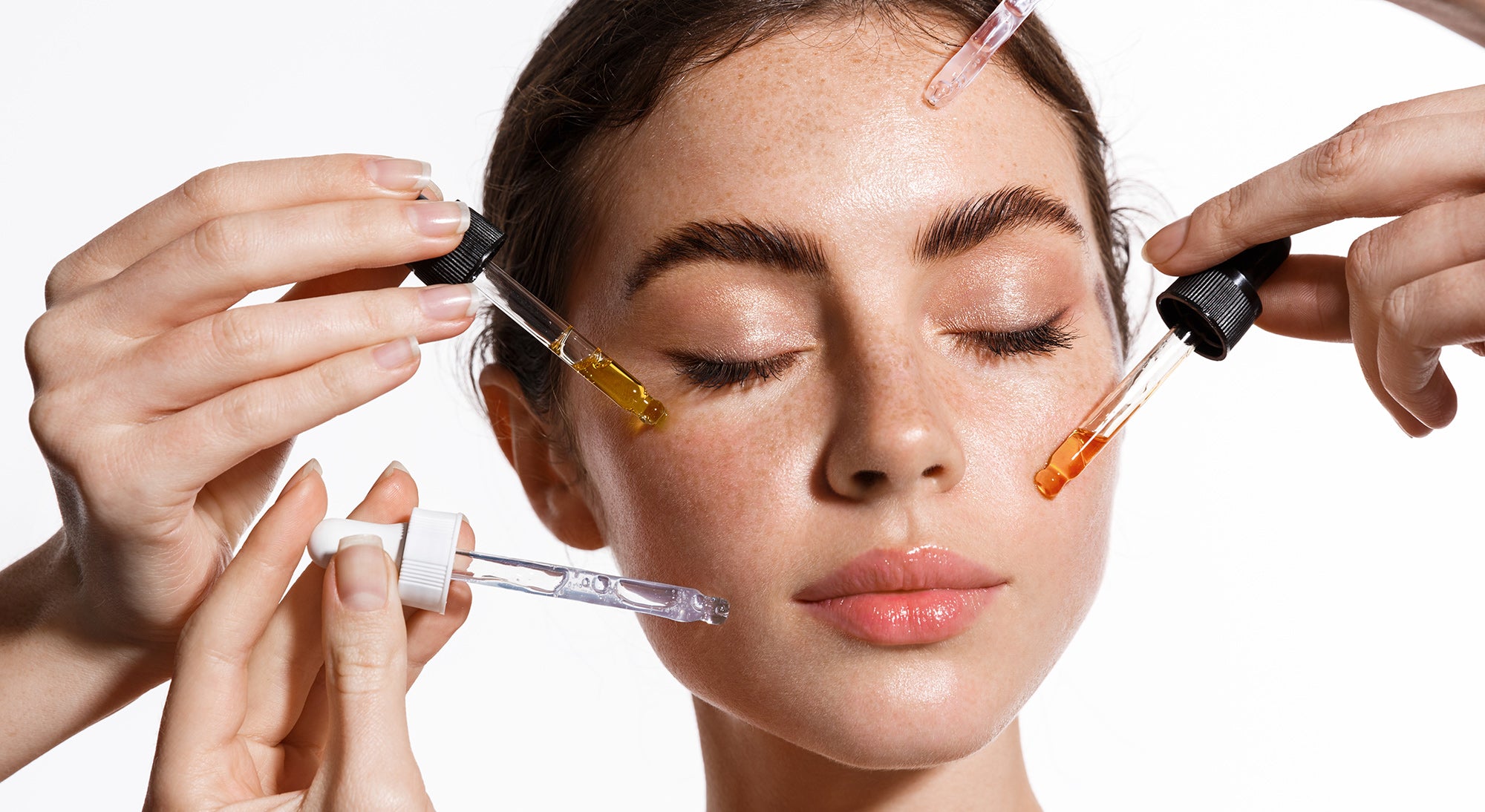Acne is a common skin condition affecting millions of people worldwide, from teenagers to adults. It can range from mild to severe, with symptoms like pimples, blackheads and cysts, significantly impacting one's confidence and quality of life.
While various treatments exist, including topical creams and medications, dietary supplements have emerged as a promising adjunct therapy for managing acne-prone skin. This blog post explores the most effective supplements for acne, backed by scientific evidence, to help you achieve clearer, healthier skin.
Understanding Acne
Acne is caused by the clogging of hair follicles with oil and dead skin cells, leading to inflammation and bacterial growth. Diet plays a crucial role in acne development. Consuming high-glycemic foods and dairy can exacerbate acne by increasing insulin levels, stimulating sebum production and promoting inflammation. Adopting a diet low in carbohydrates and high in protein, fresh fruits, vegetables and lean meats can help manage acne symptoms.

Essential Nutrients and Supplements for Acne
Zinc
Zinc is a powerful mineral known for its ability to reduce the severity of acne. Research indicates that zinc possesses anti-inflammatory properties and helps decrease the production of sebum, a key factor in acne formation. By reducing inflammation and inhibiting the growth of acne-causing bacteria, zinc can significantly improve acne-prone skin.Vitamin A
Vitamin A, particularly in the form of retinoids, has been extensively studied and shown to be beneficial for treating acne. This vitamin helps regulate the production of skin cells, reduce inflammation and prevent the formation of acne lesions.Omega-3 Fatty Acids
Omega-3 fatty acids, commonly found in fish oil, flaxseeds and walnuts, are celebrated for their anti-inflammatory effects, which can help in managing acne. These fatty acids help balance the production of sebum and reduce inflammation, contributing to clearer skin.Vitamin E
Vitamin E is an antioxidant that supports skin health and may reduce acne. It helps repair damaged skin cells and reduce inflammation, promoting healthier skin. Vitamin E’s antioxidant properties protect the skin from oxidative stress and free radicals. It also enhances the skin's natural healing process and moisturises, preventing dryness and irritation.Vitamin C
Vitamin C is another crucial antioxidant that supports skin health by reducing inflammation and promoting collagen production, which aids in wound healing and skin repair. Including vitamin C in your supplement regimen can help improve the appearance of acne-prone skin and reduce the frequency of acne breakouts.Probiotics
Probiotics are beneficial bacteria that have been linked to improved gut health and, consequently, better skin health. Research suggests that probiotics can balance gut microbiota, reduce inflammation and improve acne symptoms. Lactobacillus and Bifidobacterium strains are commonly used to support a healthy gut-skin connection.Other Potential Supplements
In addition to the key supplements mentioned, other nutrients may also contribute to acne management:- Vitamin D: Known for its role in skin health, vitamin D may help reduce skin inflammation and support the immune system.
- Nicotinamide (Vitamin B3): This vitamin is known for its anti-inflammatory properties and has been shown to reduce acne severity.
- Selenium: An antioxidant mineral that supports skin health and reduces inflammation.

Practical Tips for Supplementing
Consultation with Healthcare Providers Before starting any new dietary supplements, it is essential to consult with a healthcare provider to ensure safety and appropriateness for your individual needs.Combining Supplements with Diet and Lifestyle Changes
Supplements are most effective when combined with a healthy diet and lifestyle. Follow the dietary guidelines mentioned earlier, focusing on low-glycemic foods, lean proteins and plenty of fresh fruits and vegetables.Conclusion
Supplements for acne, such as zinc, vitamin A, omega-3 fatty acids, vitamin E and probiotics, can play a significant role in managing acne-prone skin. Incorporating these into your routine, alongside a healthy diet and lifestyle changes, can help you achieve clearer, healthier skin. Always consult with a healthcare provider before beginning any new supplement regimen. By understanding the science behind these supplements and how they can impact skin health, you can make informed decisions to support your journey to clear skin.FAQs
Can dietary supplements help with severe acne?
Yes, dietary supplements can support the management of severe acne. Specific vitamins and minerals, such as zinc and omega-3 fatty acids, have been shown to reduce inflammation and sebum production, aiding in the treatment of severe acne.How does Vitamin C benefit acne-prone skin?
Vitamin C is a powerful antioxidant that can reduce inflammation and promote wound healing, which helps in managing acne breakouts and improving overall skin health.Are B vitamins effective in treating acne?
Yes, B vitamins, particularly B3 (niacinamide) and B5 (pantothenic acid), are known to reduce inflammation and sebum production, making them effective in acne treatments.What role do vitamin and mineral supplements play in acne management?
Vitamin and mineral supplements provide essential nutrients that support skin health, reduce inflammation and improve the skin barrier function, all of which are crucial for managing acne.Can taking mineral supplements improve acne symptoms?
Mineral supplements, such as those containing zinc and selenium, can help reduce acne symptoms by decreasing inflammation and regulating oil production in the skin.How do vitamins and minerals support skin barrier function?
Vitamins and minerals, including vitamin C, B vitamins and zinc, enhance skin barrier function by promoting collagen production, reducing inflammation and supporting overall skin health.
This information is not intended to be used for diagnosis or treatment. It is aimed at presenting a perspective only and is not a substitute for a prescription. Anyone experiencing a medical condition should consult their doctor.


